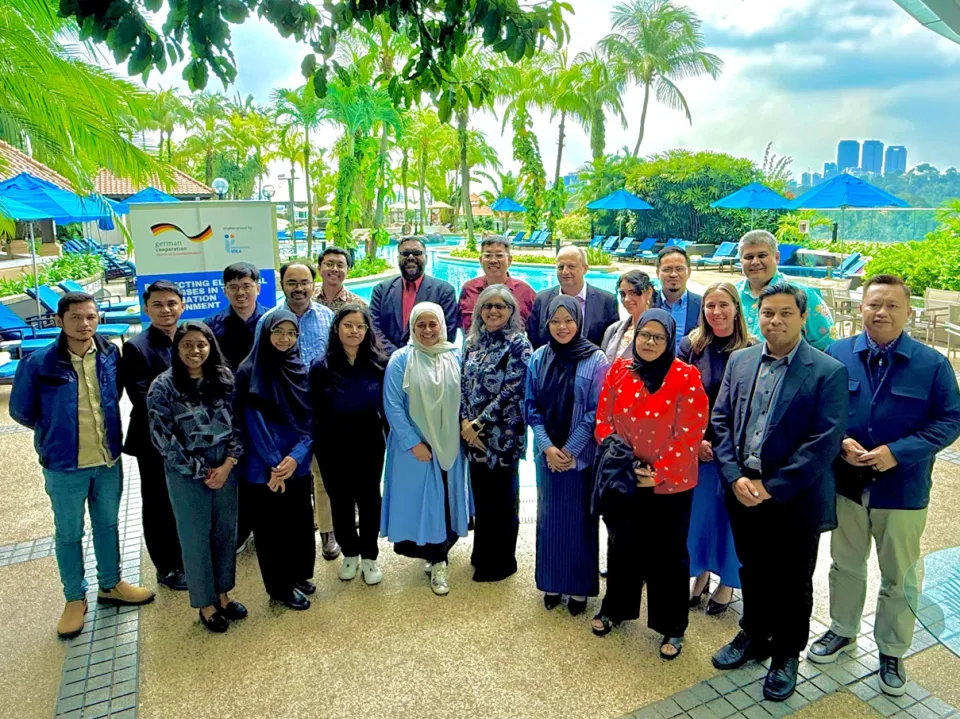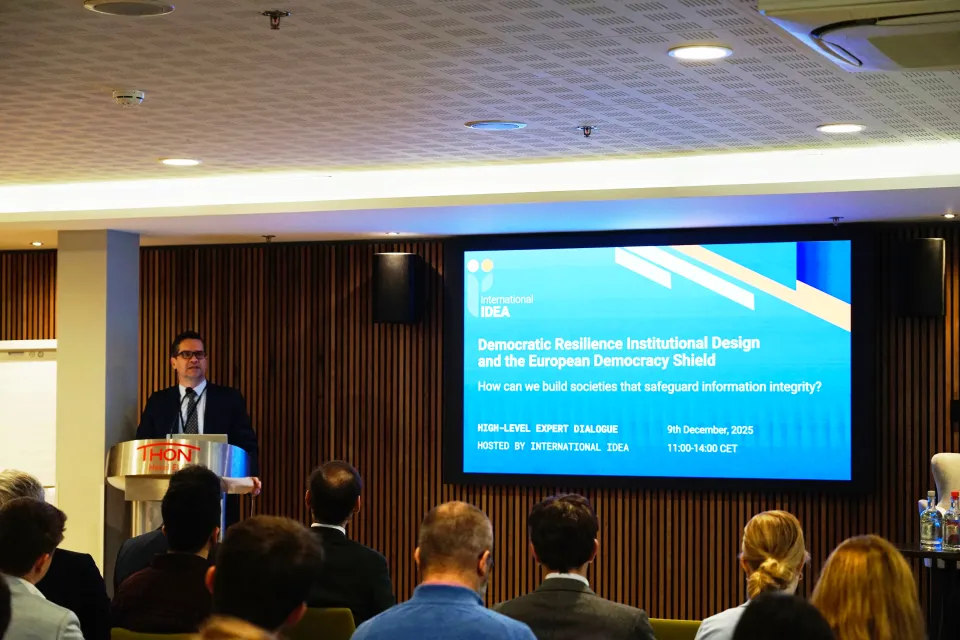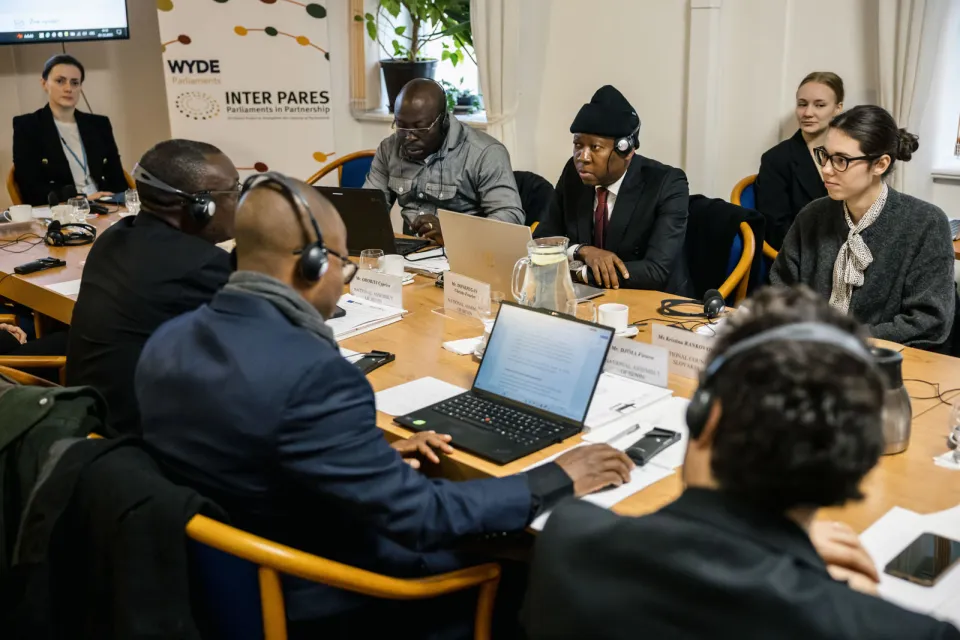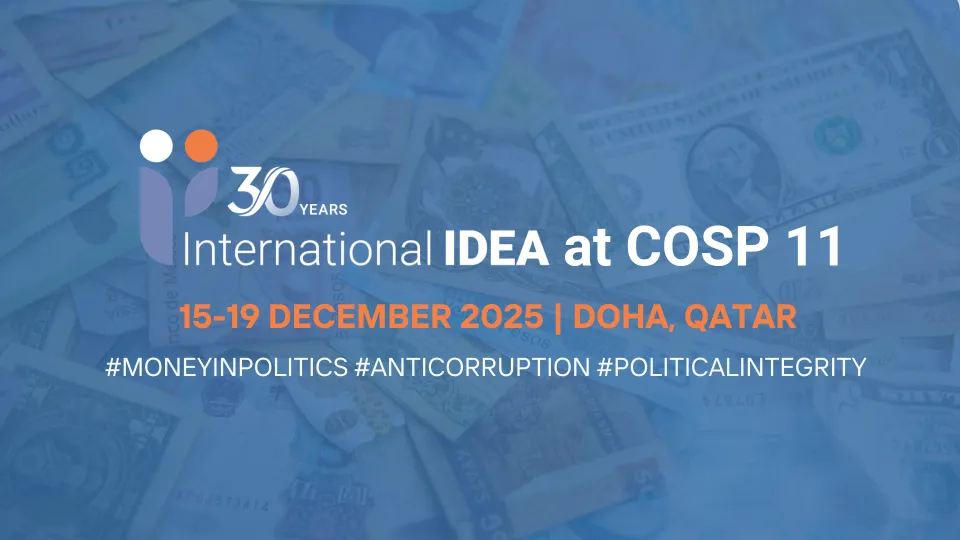International IDEA looks to regional governance in Bolivia to bolster development
Multi-level technical assistance in governance builds bridges between Cochabamba’s regional and municipal authorities
International IDEA has provided technical advice to enable the autonomous regions of Tarija and Cochabamba to carve out new horizons in their development—a life beyond natural gas inTarija, and launching a set of longawaited projects in Cochabamba’s metropolitan areas.
Tarija’s governorship presented a Production Diversity Programme to promote the region’s development, an innovative initiative which proposes a new development model, centred around water as a resource, leaving behind the history of over-reliance on natural gas.
International IDEA looks to regional governance in Bolivia to bolster development Multi-level technical assistance in governance builds bridges between Cochabamba’s regional and municipal authorities Photo credit: International IDEA The programme document was prepared by the governorship, through the Institutional Governance Secretariat, the Comprehensive Regional Governance Water Services, the Regional Agricultural Services, the Land Restoration Executive Program and the San Jacinto Multilayered Program, with assistance from International IDEA and Fundación Natura.
For Alfonso Ferrufino, International IDEA’s senior adviser in Bolivia, this represents ‘a light at the end of the tunnel’ as the programme opens new horizons for the development of Tarija. ‘Through the many inquiries which we have undertaken since 2017 we had observed that a sense of vision had gone missing. What had come about following the fall of revenues stemming from hydrocarbons not only stripped away a development horizon, but also brought about an atmosphere of mistrust and a loss of social cohesion, and it seemed as though Tarija would drift away’, he explained.
Tarija’s institutional governance secretary, Rubén Ardaya, explains that ‘the focus of the current development model lies in that we are preparing the Autonomous Region of Tarija for the struggle against climate change. We are working to equip our autonomous region as to the significance of its development model over the next 20 years’. Regarding Cochabamba, the teamwork effort undertaken on a regular basis between the governor and the seven mayors of the city’ s municipalities has been instituted, with the aim of tackling the main metropolitan challenges.
Among International IDEA’s most important contributions are the regulations encompassed in the law, Marco de Autonomías, which develops a planning and governance mechanism for the metropolitan areas through a Metropolitan Council. Likewise, International IDEA also provided advice on the development of the monitoring system for strategic projects, which are the main outputs arising from metropolitan planning and execution.
The Metropolitan Council is a model of joint governance between autonomous authorities from different jurisdictions and political orientations that is both democratic and pluralistic.
International IDEA supported the autonomous regions of Tarija and Cochabamba in Bolivia to implement practices and decision-making processes to become more transparent, inclusive, responsive and accountable to all citizens.
Read more stories about International IDEA's results in our Annual Outcome Report 2019: Democracy In Action.



